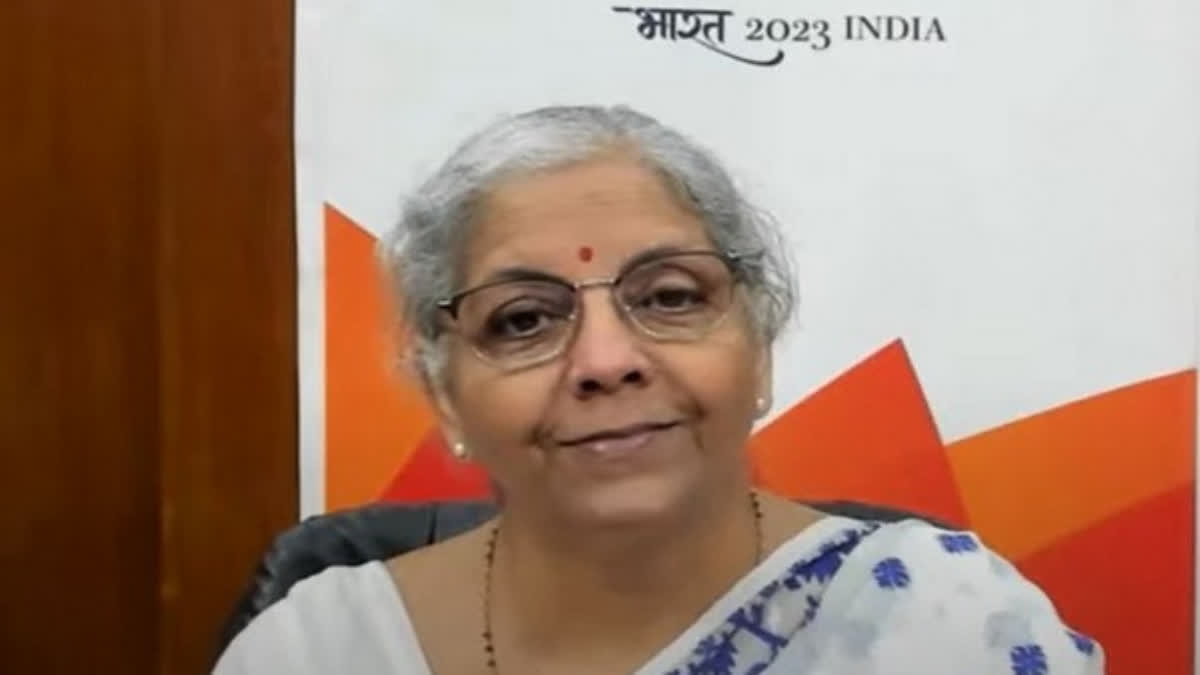New Delhi: As Finance Minister Nirmala Sitharaman is all set to table an interim budget in the Parliament on Thursday, experts from India’s healthcare domain expect that the budget should give much more attention on health care delivery, telehealth infrastructure as well as promotive and preventive healthcare. Experts are also looking for an increase in the budget provision on health to at least 2.5 percent of GDP.
“Government needs to increase budget provision on health to at least 2.5 percent of GDP without which it will be difficult to meet government objectives to have universal health coverage. This will also help to increase beneficiary base within PMJAY among underprivileged populations,” said Dr Girdhar Gyani, director general of Association of Healthcare Providers India (AHPI) to ETV Bharat.
In fact, as per the National Health Policy, 2017, the Union government should allocate at least 2.5 percent of its annual budget to the health sector. However, in 2022-23, during the peak of Covid19 pandemic, the share of the healthcare budget reached the height of 2.1 percent of the GDP.
Ironically, according to an analysis conducted by the National Council of Applied Economic Research (NCAER), the health budget’s share of the GDP in 2023-24, will decline to 1.18 percent.
In 2022-23, the centre allocated Rs 86,606 crore to the Health Ministry which was later revised downward to Rs 79,145 crore.
As the government has been keenly focusing on implementing Universal Health Coverage through two of flagship schemes; Prime Minister Jan Aarogya Yojana (PMJAY) and Ayushman Bharat National Digital Health Mission, we expect an inclusive approach from the government, Dr Gyani said.
“We need basic health infrastructure across the nation to have availability as well as accessibility of hospital beds. We need to more than double the number of beds to match the WHO requirement of 3.5 beds per 1000 population. AHPI expects the government to incentivise the private sector to build 100 bedded Ayushman Hospitals in Tier-III towns by providing cheaper capital, provide cheaper electricity at industry rate and provide for single window clearance for compliances,” said Gyani.
Dr Gyani emphasised on enhanced budget for promotive and preventive healthcare by way of; sanitation, safe drinking water and nutrition. “In the last budget there was good allocation but I do not know if it was utilized fully,” he said.
Launch adult vaccination at subsidized rates as preventive measures among vulnerable populations, including Influenza, HPV for women to prevent cervical cancer, Pneumococcal and Zoster, he said.
It is worth mentioning that the interim budget is a temporary financial plan announced before a new government is set to come in after general elections. It’s a provisional arrangement to meet the expenditure of the government for a short period till the new government comes in and makes the new full budget.
Talking to this correspondent, renowned health expert and Professor of Excellence, Community Medicine Dr Suneela Garg emphasised on strengthening healthcare infrastructure and digitization. “Moving from health to wellness, there should be promotion of Yoga,” she said. Dr Garg also emphasised on practical implementation of system preparedness for pandemics and grants to be provided for capacity building. “There should be a unique health identity card which should be linked to Aadhar,” Dr Garg who is also the sub dean of Maulana Azad Medical College stated.
“In light of the budget for 2024, we look forward to increased government support to bolster the telehealth infrastructure. We expect this year’s budget allocation to specifically highlight and stress on the transformative role telemedicine has played, especially during the pandemic, in providing accessible healthcare to remote areas,” said Atul Ayush Mishra Founder and CEO – Tattvan E Clinics, a renowned telemedicine clinic.
Advocating for financial incentives and policy reforms, Mishra said that the government must allocate funds for the expansion of telehealth services, ensuring widespread connectivity and affordability.
“We as an industry need a regulatory framework that encourages innovation and investment in technology to enhance patient care. A strategic budgetary focus on telemedicine is deemed crucial for advancing the nation’s healthcare landscape, making quality medical services more inclusive and technologically advanced. We anticipate collaborative efforts between the government and private sector to realize the full potential of telemedicine in fostering a healthier and digitally empowered India,” he said.
Read More



